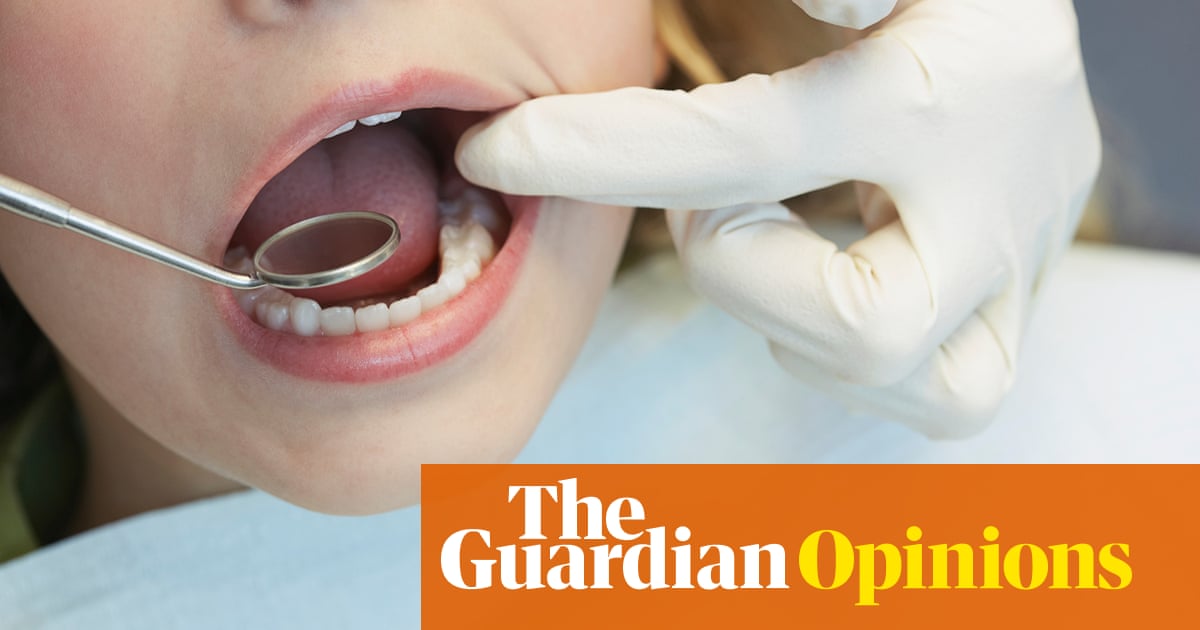
When I was 12 my childhood dentist went private. It was 2018 and I’d just had a consultation with my orthodontist, and had been told I would need at least two teeth removed before my braces could be fitted. My options were: pay (a minimum of) £55 for each tooth extraction, or find a new dentist on the NHS. By pure luck, I was accepted at a different practice. I had my teeth out, then one routine exam, before I received a letter saying that my new dentist had also gone private and I would have to start paying for treatment. I haven’t seen a dentist since.
As of 2024, no practices in Cornwall, where I live, are taking on new NHS patients above the age of 18. With lengthy NHS waiting lists and my 18th birthday rapidly approaching, it’s unlikely that I will ever see an NHS dentist again, unless some serious reform occurs. I’m not alone: thousands of patients in Cornwall are increasingly losing hope of seeing a dentist.
Figures released by the NHS in response to a freedom of information request by the Liberal Democrats show that 27,000 children in England were waiting for specialist dental care, assessments or procedures in January 2023. In Cornwall, 857 children had been referred for specialised dental treatment, with an average wait of 12 weeks – often leaving them in agonising pain for months.
The nearest sites taking on NHS patients are more than 160 miles away in Marlborough and Southampton – a round trip of at least eight hours, accumulating a large fuel cost, not to mention being a huge inconvenience for an appointment that should last about 10 minutes. There are then knock-on effects, as residents of Cornwall are left vulnerable, with their oral health declining, and with a risk of further complications arising from this neglect.
In the current cost of living crisis, many people don’t have the money to spare when it comes to their dental care. Other expenses take priority over oral health – house prices are now about 10 times the average person’s salary in Cornwall, and reporting from 2023 showed that food bank visits in some towns had increased by 80%. Because it is lower income families who can’t afford to see a dentist, class divides in Cornwall are widening.
This issue once again gives the wealthy an advantage over everyone else in England. I want to focus on my education and my future – I don’t want to have to worry about how I’ll pay for dental care, anxiously brushing my teeth with prayers that they remain healthy because I don’t wish to be a financial burden on my parents.
While this issue is particularly acute in Cornwall, it is also widespread throughout England, with 40% of children across the nation no longer having access to regular dental appointments.
A lack of these essential checkups adds further stress to NHS hospitals, which are underfunded, understaffed and don’t need preventable issues taking up time and money. Between April 2022 and May 2023, 30,000 children and more than 70,000 adults in England were admitted to A&E with tooth decay. It is the biggest primary cause of NHS hospital admissions for children aged between five and 17.
These shocking figures make me feel as if I’m living in my history textbook: health inequalities, which it was promised would be fixed under the postwar welfare state, seem to be increasing every year. The welfare state, introduced after the second world war, aimed to tackle social inequality. The policies founded within it were inspired by the Beveridge report, which laid out “the five giants” that prevented people from bettering themselves. These were: disease, ignorance, idleness, squalor and want. Today, in Cornwall, it feels as if we have gone back in time; I see these five giants stalking the land all around me.
To create an equal society, change must be brought about by the government, allowing everyone, regardless of their income, to access the care that they are entitled to under the NHS. You shouldn’t have to be wealthy to see a dentist.
-
Beth Riding is an A-level student in Cornwall
-
Do you have an opinion on the issues raised in this article? If you would like to submit a response of up to 300 words by email to be considered for publication in our letters section, please click here.